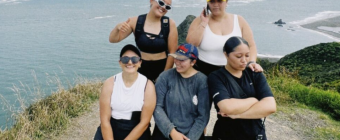KiwiSaver



Planning & budgeting
Saving & investing
KiwiSaver
Tackling debt
Protecting wealth
Retirement
Home buying
Life events
Setting goals
Money tracking
Plan your spending with a budget
Getting advice
Studying
Get better with money
What pūtea beliefs do you have?
How to save your money
How to start investing
Find a financial adviser to help you invest
Your investment profile
Compound interest
Net worth
Types of investments
Term deposits
Bonds
Investment funds
Shares
Property investment
How KiwiSaver works and why it's worth joining
How to pick the right KiwiSaver fund
Make the most of KiwiSaver and grow your balance
How KiwiSaver can help you get into your first home
Applying for a KiwiSaver hardship withdrawal
How to use buy now pay later
Before borrowing
How to get out of debt quickly
Credit reports
Know your rights
Pros and cons of debt consolidation
Credit cards
Car loans
Personal loans
Hire purchase
Student loans
Getting a fine
What happens if I start to struggle with moni?
How to protect yourself from fraud and being scammed
About insurance
Insurance types
Insuring ourselves
Wills
Enduring powers of attorney
Family trusts
Insuring our homes
Losing a partner
Redundancy
Serious diagnosis
How to cope with the aftermath of fraud
Separation
About NZ Super
This year's NZ Super rates
When you’re thinking of living in a retirement village
How to plan, save and invest for retirement
Manage your money in retirement
Find housing options in retirement
Planning & budgeting
Saving & investing
KiwiSaver
Tackling debt
Protecting wealth
Retirement
Home buying

KiwiSaver

Budgeting

KiwiSaver

Budgeting

Women

Women

Women

Budgeting


Resources
Help with the cost of living
Just wondering
In need of financial help
Booklets
Glossary
Videos
Blogs
View all
10 October 2016
Reading time: 4 minutes
Posted
by
Tom Hartmann
, 2 Comments

Emergency funds seem to be having a moment. Around the world we’re seeing more and more initiatives aimed at helping people set aside money for the unexpected. This makes a lot of sense.
There are so many benefits to building a buffer. Some of these may surprise, though, since they are a lot more about mindset and habits than just having a few hundred dollars socked away for when the car blows its foo-foo valve.
I can think of ten reasons why we need a cash cushion at all costs:
1. It frees up our headspace. Everybody’s got limited mental bandwidth, and it gets loaded down when money is tight. Having funds set aside frees us up mentally to make better decisions. When it’s hard to make ends meet, not having any slackis the equivalent of trying to function effectively without a night’s sleep.
2. It helps us weather the storms. Emergencies will happen, so we need to expect the unexpected. Rainy day funds give us the resilience we need when the storms hit. They’re really a form of self-insurance, where we take on some risks ourselves instead of paying a company.
3. It keeps us from crisis borrowing. Payday lenders don’t exactly charge mates rates. They may seem like the only option in a crunch, but if you crunch the numbers, we’re the ones getting squeezed.
4. It lowers our anxiety. Concerns about what could go wrong, especially about the money we might need in an emergency, typically drive anxiety levels up. A cash cushion gives us less to worry about.
5. It helps our budget breathe. Trying to stretch a household budget too thin is a recipe for difficulty, so budgets need to breathe. Having an emergency fund to fall back on lets the budget, and us by extension, breathe easier.
6. It keeps us on track towards our goals. There’s no point in setting goals if the first unforeseen cost is going to wipe out our progress, right?
7. It allows us to pick the habit. We slip into so many of our habits unawares. Deciding to build a buffer means we’ve chosen one that’s worth sticking with for life: saving.
8. It builds our technique. Saving takes good techniques like making it automatic and paying ourselves first, and those will come in handy as we’re working towards our other life goals.
9. It’s our gateway to investing. The act of building a buffer shows us how to make a surplus, which is absolutely necessary for investment, too. It’s an on-ramp.
10. It shows us how much we can achieve over time. Once we see that we’re in charge and can flow our money where we want to – and not just where the sales folks want – we’re empowered. Just seeing how our regular savings add up and compound gives us more confidence in what’s possible.
As a rule of thumb, Sorted typically recommends setting aside three months’ worth of expenses in an emergency fund. Self-employed folks or those with uneven incomes may want to put away more.
Some time ago I realised that a cash cushion is not something that anyone else can give you. (Well they can, but you may not be able to hold on to it.) My parents once pitched in a couple of thousand so I’d have something in case of emergency. Unfortunately it soon slipped through my fingers because I didn’t change any of my faulty habits with money to be able to keep it.
An emergency fund is something you need to build yourself. And perhaps that’s the best benefit of all: achieving something worthwhile and getting ahead.
5 steps to get your $521
1 Comment
Who’s teaching your daughter (or niece, or granddaughter) about money?
1 Comment
My Money Sorted: Hilary Barry
2 Comments
My Money Sorted: Ben
3 Comments
My Money Sorted: Daniel
1 Comment
8 ways to hack Christmas when you’re stretching the budget
6 Comments

Use verification code from your authenticator app. How to use authenticator apps.
Code is invalid. Please try again
Don't have an account? Sign up
Or log in with our social media platforms


A Sorted account gives you a personal dashboard where you can save your tools, track your progress and you'll also receive helpful money tips and guidance straight to your inbox.



Comments (2)
Comments
10 December 21
Tom from Sorted
You're right – that amount was recommended to cover the risk of redundancy, so people have a buffer to cover the loss of a job for three to six months. It helps to work backwards from the risk of what could happen, and what you might need money for in a hurry. For a car repair or dental work, for instance, having $1000 or $2000 in an emergency fund may do the trick. For retirees, see our three-bucket system here: https://sorted.org.nz/guides/retirement/stretching-our-retirement-savings.
8 December 21
The recommendation for three to six months seems to be based on people still earning an income. What's the rule of thumb for someone just retired and about to start drawing an income from their investments ?
No one has commented on this page yet.
RSS feed for comments on this page | RSS feed for all comments